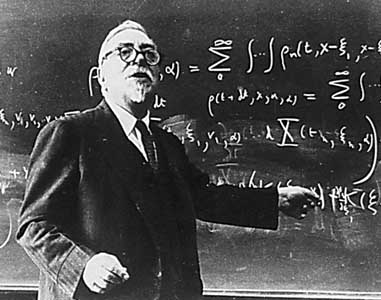¿Por qué seguir leyendo a Castells?
En el mosaico socio tecnológico contemporáneo que nos ha tocado vivir, no pareciera haber suficientes elementos que contribuyan a comprender la sociedad post TV.
Época inconclusa, de transiciones, donde el híbrido y las versiones beta son lo de hoy. No sólo en tecnología sino que en cuestiones de género, ciudadanía, profesionalización, estructura organizacional, educación, entre otros. Por ello, ofrecer un panorama de análisis a quienes se interesan por reflexionar en torno a estos temas no es tarea fácil. Probablemente otro hara-kiri académico.
Sin embargo, desde este punto de vista el caleidoscopio metamórfico de nuestros días, lo más sensato es atender la complejidad como una condición "sine qua non" de la fotografía digital retocada de nuestros días.
Por eso traigo aquí un texto que encuentro en ictlogy sobre Manuel Castells. Este paper (Materials for an exploratory theory of the network society [2000], pdf) resume en unas cuantas páginas la generosa trilogía de este catalán y acuña muchas ideas que atan cabos en un tempestuoso océano de charlatanes.
Aquí algunos apuntes digitales:
‘Network society’: Random combination of social events in a preexisting, historically determined, social structure. A network is a set of interconnected nodes. They are the most flexible, and adaptable forms of organization, able to evolve with their environment and with the evolution of the nodes that compose the network. Information networks, contribute to enlarge the transformation of social structure in the information age.
‘Technology’: The use of scientific knowledge to specify ways of doing things in a reproducible manner. Plays an essential role in framing the relationships of experience. Technology… as a specific layer of the social structure, following an old tradition in human ecology. Technology as a material tool, and meaning as symbolic construction, through relationships of production/consumption, experience, and power, are the fundamental ingredients of human action. Technology is not the cause of the transformation; it is indeed the indispensable medium.
‘Technological paradigm’: A cluster of inter-related technical, organizational, and managerial innovations, whose advantages are to be found in their superior productivity and efficiency in accomplishing an assigned goal, as a result of synergy between its components.
'Internet': It becomes a universal tool of interactive communication, as we shift from computer-centred technologies to network-diffused technologies. Internet is becoming a very instrumental tool of management of new forms of life, including the building of on-line communities of support and collective learning.
‘Informational new economy’ (a new brand of capitalism): The capacity of generating knowledge and processing/managing information determine the productivity and competitiveness of all kinds of economic units, be they firms, regions, or countries.
‘Networked new economy’: At the heart of the connectivity of the global economy and of the flexibility of informational production, there is a new form of economic organization; the network enterprise.
‘The State’: It is undergoing a process of dramatic transformation. The weakening of its power and credibility induce people to build their own systems of defense and representation around their identities, further de-legitimizing the state. The state in the information age is a network state, a state made out of a complex web of power-sharing, and negotiated decision-making between international, multinational, national, regional, local, and non-governmental, political institutions. The state reacts to its bypassing by information networks, by transforming itself into a network state.
‘Culture’: The fragmentation of culture and the individualization of positions in relationships of production, lead jointly to a growing diversification of consumption patterns.
Lectura recomendada:
"Socialización del conocimiento académico con el uso de tecnologías de información y comunicación (TIC)". Rixio Nava Muñoz [Revista Venezolana de Información, Tecnología y Conocimiento].
Etiquetas: conocimiento, Internet, sociedad de la información, tecnologìa













<< Home